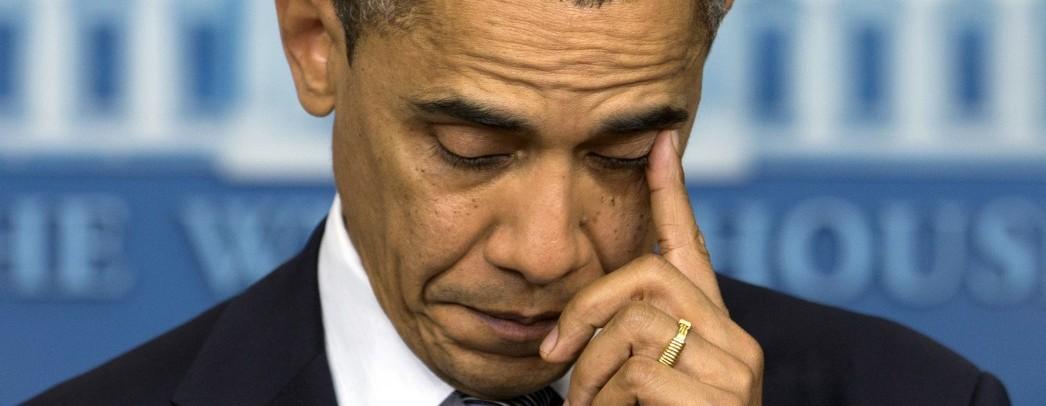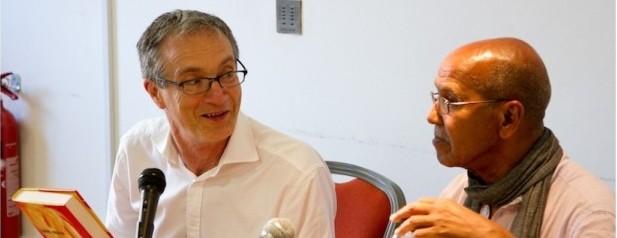Obama in Addis – By Richard Dowden

 I had expected President Obama to say some tough things to Africa’s rulers at the African Union in Addis Ababa last week but I expected him to make the criticisms discreetly, by inference rather than directly. He didn’t.
I had expected President Obama to say some tough things to Africa’s rulers at the African Union in Addis Ababa last week but I expected him to make the criticisms discreetly, by inference rather than directly. He didn’t.
Speaking as the “son of an African” he made a speech that only he could make. He spoke both as the most powerful man in the world and as “the son of an African”. He cited Africa’s “extraordinary progress” in the last few years and wants America to be a partner not a patron.
He reached over the heads of the state to the African masses but also gave the heads of Africa’s states some tough warnings. They could not dismiss this as neo-colonialism or interference in internal affairs. And the mixed audience responded to his words with spontaneous enthusiastic cheers and applause although some – especially Ethiopians – admitted there were scared of being caught on camera applauding Obama’s critical words.
“The bottom line” he said, “is that when citizens cannot exercise their rights, the world has a responsibility to speak out.” And he did.
Deploying all his charisma, he elegantly juxtaposed the dream with blunt truth-telling. There was no doubt who the heroes and villains were. He began with a line he first deployed on his first visit as President to Africa in Ghana: “Africa doesn’t need strongmen. It needs strong institutions”.
It wasn’t clear how many African heads of state were in the room. Museveni was there. Mugabe certainly wasn’t. I wished they had all been there for the TV cameras to focus on their faces when he called for term limits.
Obama went further, naming and threatening individual presidents like the South Sudanese President, Salva Kiir, and warned him and the rebel leader Riak Machar that if they did not make peace they would face sanctions. He also cited the Burundi president for failing to step down, and criticised other presidents for extending their rule but did not mention any by name.
He even criticised his hosts, the Ethiopian government, for restricting journalists and legitimate opposition groups. Bizarrely, that remark was applauded. Who was cheering? Brave Ethiopians?
“Nothing will unlock Africa’s economic potential more than ending the cancer of corruption”, he said, citing those who do business with Africa, not just Africans. “But only Africans can end corruption in their countries”, he said.
Again he returned to the main thread of his speech – young Africa. “Ultimately, the most powerful antidote to the old ways of doing things is this new generation of African youth.”
It was becoming clear that he was reaching over the heads of state and their governments to inspire young Africans, especially urban and educated ones. Two thirds of Africa’s people are under 35. Africa, he said, has the “demographic edge” but he warned that they needed to be trained. If they were not, Africa’s youth would end up jobless, leading to instability and disorder.
My impression from recent visits to schools in Africa is that state schools are poorly run and underfunded and more and more people are spending their meagre resources to send their children to private schools. Many schools still teach a curriculum that went out of date 20 years ago.
President Obama also talked about Africa’s economies and called for more trade within Africa and more open borders. He cited the failure of East Africa to open its borders to more trade.
Nothing, he said, will unlock Africa’s economic potential more than ending corruption but pointed out that it wasn’t unique to Africa. But he also mentioned illicit financial flows and called for honest accounting by transnational companies making sure capital flows are properly accounted for.
He mentioned aid – no boasting about American largesse – and said Africans did not want just aid but a real partnership between equals. America’s aim was to help Africa build its own capacity through Initiatives such as Power Africa initiative to reduce the numbers of Africans without electricity. Significantly there was no mention of China.
So what will be the impact of this remarkable speech? It is very much what America and other western countries have been saying at a diplomatic level. Spoken bluntly through a megaphone to the heads of state, it might give some African heads of state some cause for concern. But I think Obama was talking about, rather than to, the heads of state. Although it sounded like simple common sense, in Africa this was a revolutionary speech. He was appealing to young Africa to rise up and seize their future.
When Nelson Mandela was released from jail many African opposition leaders pointed out that he would not have survived 28 years in any other jail in Africa. His speeches were quoted by many Africans living under dictatorships. This speech will be even more significant in the struggle against dictatorships and corruption in Africa.
Richard Dowden is Director of the Royal African Society.






What ever he said or suggested came thru one ear and left thru the other…….Like the Article in Addis said……The chinese came in with an Economy plan and a plane load of Cash but Obama came with plenty of Rhetoric a load of Huplah……..Whatever he said does not matter nor is going to change the reality on the Ground…….The continent or Ethiopia are not looking for Futuristic promises but a real Economic stimulus to help it grow even further……the remarkable double digit growth of the Economy is assisted by the Chinese and the local Enterprenuers and not by US involvment……Obama has nothing to do with it.
American leaders speak very well about values. Better still would be if they followed through with action, especially under the cover of darkness.the African people cannot end corruption in Africa when American weapons are trained at them. The African people cannot call errant leaders to account when America and her friends bankroll and protect them, the African people cannot build a stable and prosperous future when America and her friends do everything to bleed us dry. The African people cannot build pax Africana, when American drones, American sponsored insurgencies and nato threatens to invade every poor land that tries to break free of the shackles of western capitalist oppression. Young African people should not regard seriously the words of a leader of a land that continues to oppress and kill its own sons and daughters simply because they are the wrong shade of humanity. America has more in common with Khartoum than with the rhetoric of freedom it peddles around the world.Washington is a place full of hypocrisy where imperialism is sugar coated with nice words and fed to the world like opium and like opium intoxicates the unenquring masses.i prefer the Chinese. They don’t pretend they are nice, but they have done some nice things for us. And they don’t bang on when they do nice things for others. I’d take China’s forthrightness over American democracy any day…. And I’m an African in my thirties.